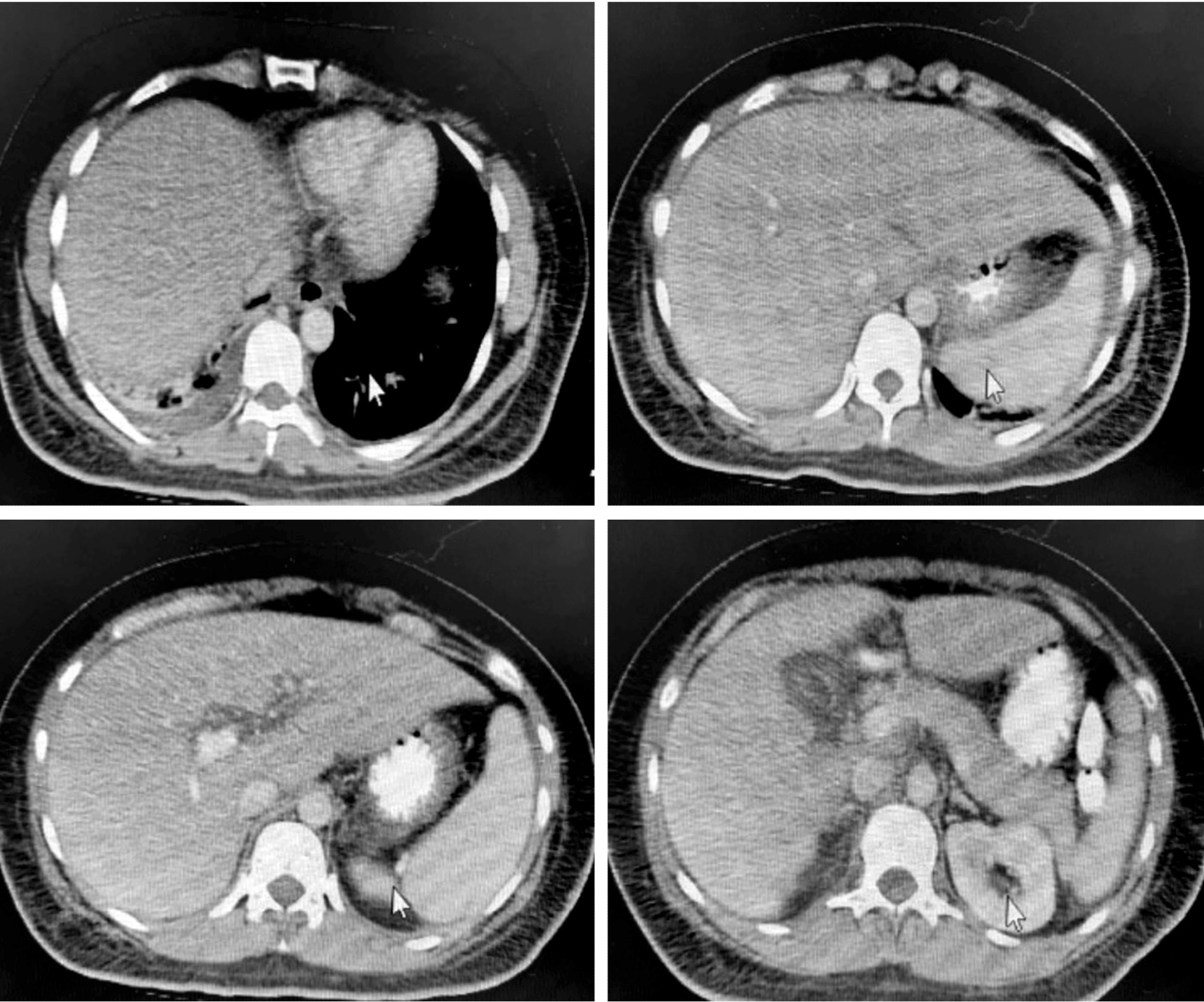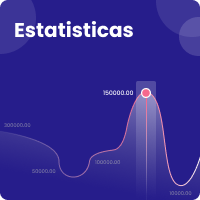Diagnóstico de un caso de hepatotoxicidad por fármacos y suplementos herbales en un hospital de Pasto, Colombia
DOI:
https://doi.org/10.22516/25007440.866Palavras-chave:
Hepatitis tóxica, analgésicos, antiinflamatorios no esteroideos, ictericia, suplementos dietéticosResumo
El hígado es un órgano crucial en el metabolismo y algunas sustancias pueden inducir hepatitis toxica con alta morbimortalidad. La enfermedad hepática inducida por sustancias químicas y medicamentos es un desafío tanto diagnostico como terapéutico, puesto que requiere la realización de estudios de extensión para descartar otras entidades. A continuación se presenta el caso de una paciente femenina de 51 años sin comorbilidades de base, ingresada por clínica de 2 días de evolución consistente en ictericia progresiva, episodios diarreicos sin acolia ni otra manifestación adicional. Aparentemente, su cuadro fue provocado por la administración de nimesulida, 2 tabletas al día por 2 días, contra el dolor secundario a un quiste mandibular diagnosticado en días anteriores. Durante su ingreso a urgencias la paciente describió consumo crónico, a diario desde hace 4 años, de productos de Herbalife®. Cursa con elevación de transaminasas, prolongación del tiempo de protrombina (TP) e hiperbilirrubinemia directa. Se descartan enfermedades infecciosas e inmunológicas. Se decidió iniciar el cubrimiento antibiótico y vitamina K. Finalmente y por exclusión, se realizó una biopsia hepática que sugirió un proceso inflamatorio compatible con hepatitis inducida por fármacos. La mujer evolucionó favorablemente al suspender la medicación y el suplemento dietético referido. En conclusión, el caso expuesto constituye un punto inicial en el avance hacia la investigación en hepatotoxicidad por mecanismos compartidos de diversas sustancias simultáneamente, como lo sucedido a la paciente con el uso paralelo de Herbalife® y de nimesulida.
Downloads
Referências
Trefts E, Gannon M, Wasserman DH. The liver. Curr Biol. 2017;27(21):R1147-R1151. https://doi.org/10.1016/j.cub.2017.09.019
Woo S, Davis W, Aggarwal S, Clinton J, Kiparizoska S, Lewis J. Herbal and dietary supplement induced liver injury: Highlights from the recent literature. World J Hepatol. 2021;13(9):1019-1041. https://doi.org/10.4254/wjh.v13.i9.1019
Bessone F, García-Cortés M, Medina-Caliz I, Hernandez N, Parana R, Mendizabal M, et al. Herbal and Dietary Supplements-Induced Liver Injury in Latin America: Experience From the LATINDILI Network. Clin Gastroenterol Hepatol. 2022;20(3):e548-e563. https://doi.org/10.1016/j.cgh.2021.01.011
Garcia-Cortes M, Robles-Diaz M, Stephens C, Ortega-Alonso A, Lucena M, Andrade R. Drug induced liver injury: an update. Arch Toxicol. 2020;94(10):3381-3407. https://doi.org/10.1007/s00204-020-02885-1
Bessone F, Hernandez N, Tagle M, Arrese M, Parana R, Méndez-Sánchez N, et al. Drug-induced liver injury: A management position paper from the Latin American Association for Study of the liver. Ann Hepatol. 2021;24:100321. https://doi.org/10.1016/j.aohep.2021.100321
Andrade R, Chalasani N, Björnsson E, Suzuki A, Kullak-Ublick G, Watkins P, et al. Drug-induced liver injury. Nat Rev Dis Primers. 2019;5(1):58. https://doi.org/10.1038/s41572-019-0105-0
Meunier L, Larrey D. Recent Advances in Hepatotoxicity of Non Steroidal Anti-Inflammatory Drugs. Ann Hepatol. 2018;17(2):187-191. https://doi.org/10.5604/01.3001.0010.8633
Bessone F, Hernandez N, Mendizabal M, Ridruejo E, Gualano G, Fassio E, et al. Serious liver injury induced by Nimesulide: an international collaborative study. Arch Toxicol. 2021;95(4):1475-1487. https://doi.org/10.1007/s00204-021-03000-8
Donati M, Conforti A, Lenti M, Capuano A, Bortolami O, Motola D, et al; DILI-IT Study Group. Risk of acute and serious liver injury associated to nimesulide and other NSAIDs: data from drug-induced liver injury case-control study in Italy. Br J Clin Pharmacol. 2016;82(1):238-48. https://doi.org/10.1111/bcp.12938
Björnsson H, Björnsson E. Drug-induced liver injury: Pathogenesis, epidemiology, clinical features, and practical management. Eur J Intern Med. 2021;S0953-6205(21)00375-7. https://doi.org/10.1016/j.ejim.2021.10.035.
LiverTox: Clinical and Research Information on Drug-Induced Liver Injury [Internet]. Bethesda (MD): National Institute of Diabetes and Digestive and Kidney Diseases; 2012-. Nimesulide. [Updated 2016 Mar 1]. Available from: https://www.ncbi.nlm.nih.gov/books/NBK547948/
Zheng E, Sandhu N, Navarro V. Drug-induced Liver Injury Secondary to Herbal and Dietary Supplements. Clin Liver Dis. 2020;24(1):141-155. https://doi.org/10.1016/j.cld.2019.09.009
Jurčić D, Gabrić M, Troskot R, Liberati A, Mirat J, Včev A, et al. Herbalife® associated severe hepatotoxicity in a previously healthy woman. Acta Clin Croat. 2019;58(4):771-776. https://doi.org/10.20471/acc.2019.58.04.26
Santos G, Gasca J, Parana R, Nunes V, Schinnoni M, Medina-Caliz I, et al. Profile of herbal and dietary supplements induced liver injury in Latin America: A systematic review of published reports. Phytother Res. 2021;35(1):6-19. https://doi.org/10.1002/ptr.6746
LiverTox: Clinical and Research Information on Drug-Induced Liver Injury [Internet]. Bethesda (MD): National Institute of Diabetes and Digestive and Kidney Diseases; 2012-. Herbalife. [Updated 2018 Apr 11]. Available from: https://www.ncbi.nlm.nih.gov/books/NBK548447/
Grewal P, Ahmad J. Severe liver injury due to herbal and dietary supplements and the role of liver transplantation. World J Gastroenterol. 2019;25(46):6704-6712. https://doi.org/10.3748/wjg.v25.i46.6704
Wang Y, Li W, Xia S, Guo L, Miao Y, Zhang B. Metabolic Activation of the Toxic Natural Products From Herbal and Dietary Supplements Leading to Toxicities. Front Pharmacol. 2021;12:758468. https://doi.org/10.3389/fphar.2021.758468
de Boer YS, Sherker A. Herbal and Dietary Supplement-Induced Liver Injury. Clin Liver Dis. 2017;21(1):135-149. https://doi.org/10.1016/j.cld.2016.08.010
Hillman L, Gottfried M, Whitsett M, Rakela J, Schilsky M, Lee W, et al. Clinical Features and Outcomes of Complementary and Alternative Medicine Induced Acute Liver Failure and Injury. Am J Gastroenterol. 2016;111(7):958-965. https://doi.org/10.1038/ajg.2016.114
Ballotin V, Bigarella L, Brandão A, Balbinot R, Balbinot S, Soldera J. Herb-induced liver injury: Systematic review and meta-analysis. World J Clin Cases. 2021;9(20):5490-5513. https://doi.org/10.12998/wjcc.v9.i20.5490
Kwon J, Kim S, Yoo H, Lee E. Nimesulide-induced hepatotoxicity: A systematic review and meta-analysis. PLoS One. 2019;14(1):e0209264. https://doi.org/10.1371/journal.pone.0209264
Zhou L, Pang X, Xie C, Zhong D, Chen X. Chemical and Enzymatic Transformations of Nimesulide to GSH Conjugates through Reductive and Oxidative Mechanisms. Chem Res Toxicol. 2015;28(12):2267-77. https://doi.org/10.1021/acs.chemrestox.5b00290
López-Gil S, Nuño-Lámbarri N, Chávez-Tapia N, Uribe M, Barbero-Becerra VJ. Liver toxicity mechanisms of herbs commonly used in Latin America. Drug Metab Rev. 2017;49(3):338-356. https://doi.org/10.1080/03602532.2017.1335750

Downloads
Publicado
Como Citar
Edição
Seção
Licença

Este trabalho está licenciado sob uma licença Creative Commons Attribution-NonCommercial-NoDerivatives 4.0 International License.
Aquellos autores/as que tengan publicaciones con esta revista, aceptan los términos siguientes:
Los autores/as ceden sus derechos de autor y garantizarán a la revista el derecho de primera publicación de su obra, el cuál estará simultáneamente sujeto a la Licencia de reconocimiento de Creative Commons que permite a terceros compartir la obra siempre que se indique su autor y su primera publicación en esta revista.
Los contenidos están protegidos bajo una licencia de Creative Commons Reconocimiento-NoComercial-SinObraDerivada 4.0 Internacional.

| Métricas do artigo | |
|---|---|
| Vistas abstratas | |
| Visualizações da cozinha | |
| Visualizações de PDF | |
| Visualizações em HTML | |
| Outras visualizações | |















